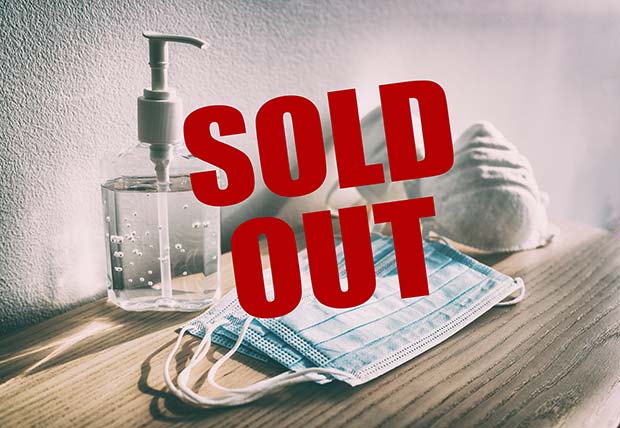All around the world, fears continue to grow over the impact of coronavirus (COVID-19), with (at the time of writing this article) over 138,000 confirmed cases worldwide.
 Unfortunately, with the rapid spread of the virus, hundreds of thousands of consumers are emptying the shelves in their local shops and supermarkets, and online, to stockpile what they determine as essential products. Thus, consumers now experience long queues and empty shelves, while retailers experience short supply outweighed by the massive demand, especially for basic and essential products.
Unfortunately, with the rapid spread of the virus, hundreds of thousands of consumers are emptying the shelves in their local shops and supermarkets, and online, to stockpile what they determine as essential products. Thus, consumers now experience long queues and empty shelves, while retailers experience short supply outweighed by the massive demand, especially for basic and essential products.
Items such as toilet paper, surgical masks, hand sanitiser, canned foods and dry pasta are just a few examples of the items that are in short supply, as sales increase exponentially caused by consumer stockpiling. The use of the term ‘short supply’ is in the context of unusually high and irregular demand, that is to say the supply would not be short if consumer buying habits were normal.
One of the main impacts of panic buying is excessive demand on the supply chain and the reason why we will be told that Global stocks are not infinite and subject to rationing or running out all together. Whilst consumers pile demand on the retailers, the retailers in turn try to match the demand profile onto wholesalers/stockists and distributors; likewise the wholesalers and distributors put pressure on manufacturers to meet demand – and that is where the issues in maintaining supply becomes evident. The producers and manufacturers have a defined volume that they can manufacture influenced by raw material supply availability and of course their own production capacity, locally and Globally. These measurable constraints are further impacted by the unexpected closure of borders and as we have seen since December 2019, disruption and total failure in supply chains across all sectors, not just retail and FMCG supply chains.
As a result of the current pandemic and its direct impact on supply chains, Tesco, the UK’s largest grocer is restricting the sales of essential foods and household items.
Sainsbury’s and Waitrose have also limited the purchases of soap, handwash, tissues and cleaning products to five of each item per customer. However, Sainsbury’s hasn’t applied any restrictions on the number of food products that consumers can purchase, despite the on-going stockpiling behaviour.
Co-op’s restrictions are of 3 units per person over hand sanitiser, toilet and kitchen rolls, antibacterial soap and hand and surface wipes, while Asda and Aldi have introduced a limit of maximum two bottles per person on hand sanitiser.
In a recent announcement, the Confederation of Paper Industries (CPI) and Paper Industry Technical Association (PITA) are trying to restore consumers’ trust, insisting stockpiling hygiene products during coronavirus is not necessary, as both manufacturing and distribution of toilet paper continues to operate as usual.
So why do consumers still stockpile?
Specialists say the answers is the fear of the unknown and thinking a dramatic event, such as COVID-19, demands a dramatic response, hence it is also referred to as ‘panic’ buying. This is usually spurred on by sensationalised media coverage. It may not be considered by some as a rational reaction, but despite all the evidence and advice from authorities and governments it will always happen regardless, when these types of major Global events occur.
The Supply Chain Consulting Group offers expertise and support in Supply Chain Strategy, Business Continuity Planning and both strategic and tactical implementation support.
For further information visit www.sccgltd.com or call our head office on +44 (0)1926 430 883




Comments are closed.